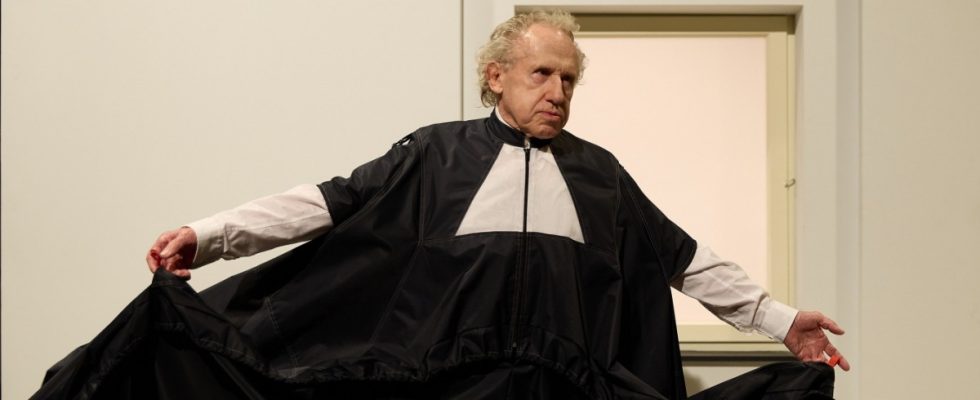How can a German author currently write a piece about Ukraine? After February 24, 2022 at the latest, this seems almost impossible. Strong Ukrainian voices are rightly taking precedence on German stages at the moment. Natalka Vorozhbyt’s “Green Corridors” at the Kammerspiele is one of them, for example, an outstanding evening. In addition to the Ukrainian-Russian production “Xata”, there will now be another play with a connection to Ukraine at the same house. And surprisingly: from a German perspective.
However, the story of this production with the title “Mrs. Schmidt and the Child from Kharkiv” does not begin until 2022. The author and director Anne Habermehl has long had in mind to write a play with a connection to Ukraine. She started researching about five years ago and wanted to travel to the Eastern European country, she says. And failed.
First the pandemic came and prevented a stay. Then she had a ticket with a departure date of February 25, 2022, says Habermehl. The fact that she was unable to take this flight one day after the outbreak of war needs no further explanation. So cancel the project? Anne Habermehl decided against it, feeling that she had to take up the topic in this highly heated situation. Next Friday, “Mrs. Schmidt and the Child from Kharkiv” will have its premiere in the Werkraum of the Kammerspiele. It’s an evening about many empty spaces.
It’s exciting to see what Habermehl has done: As she herself says, she writes “from our perspective” – and that means “having no idea about Ukraine.” This is put very pointedly. Your piece is more of a very honest question: What don’t we know, what could we know and what should we have known long ago? She tells this elegantly using two father-mother-child constellations, set in two different times.
“Mrs. Schmidt and the Child from Kharkiv” is the second part of a trilogy. The first one – which was actually supposed to be about Ukraine – appeared in 2021 with the title “Frau Schmidt drives across the Oder”. As with part two, Habermehl took over the arrangement of the premiere himself. The piece is about the late repatriate Susanne, who comes from the East to the West, full of utopias that cannot stand up to reality.
Anne Habermehl herself directed “Frau Schmidt goes over the Oder”. She now does that in the second part of her trilogy.
(Photo: Julian Baumann)
The second part of the trilogy, which is now being published, takes place in two time periods, once from 1944 to 1955, once from 1999 to 2022, the setting is Mannheim. The time during and after the Second World War tells of a Schmidt family: The father was an engineer in the Ukraine and is silent about his experiences, about the crimes and also about the son he fathered there. Decades later, the Schmidts also put out feelers to Ukraine – in order to adopt a child through non-legal means, which they succeeded in doing. There is also silence about these processes and their meaning.
Schmidt, says Habermehl, is the ultimate German last name for her. Both families represent collective destinies. “I was looking for connections to Ukraine that have nothing to do with the current war, but are also dark places,” she says. The silence about the war and the German crimes in Ukraine is one such point. At the same time, it is part of her own family biography, says the author, who was born in 1981. Her grandfather was an engineer in the Ukraine. We don’t know what happened there.
Habermehl believes that such gaps have generally not been addressed and require a closer look. During her research, she also came across another dark point: the blatant increase in adoptions of children from Eastern Europe after the fall of the Wall. This is where the other part of their drama begins. “History is not an abstract thing, it is the sum of decisions,” she says. She makes this noticeable in her new piece, which she brings to the stage with Johanna Eiworth, Walter Hess, Frangiskos Kakoulakis and Edmund Telgenkämper.
“Mrs. Schmidt and the child from Kharkiv”Premiere: Friday, November 24th, 7:30 p.m., Werkraum, www.muenchner-kammerspiele.de

